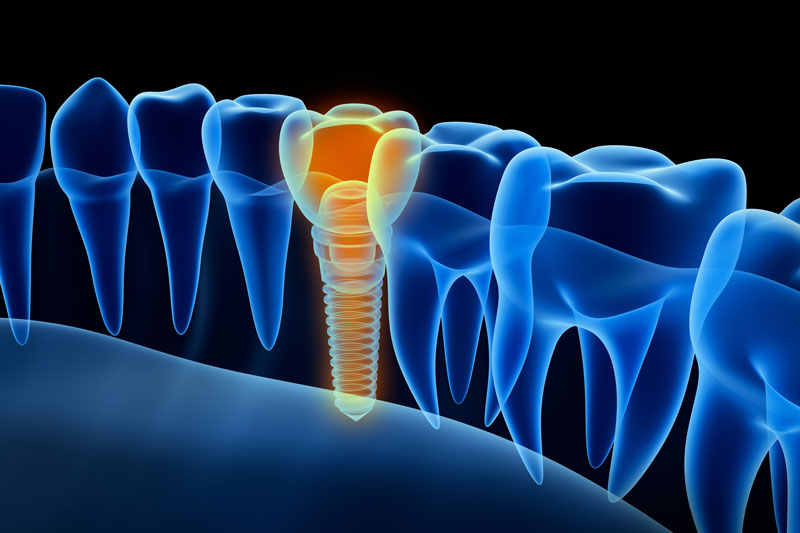The Dental Implant Process

A popular alternative to traditional dentures and bridges, dental implants provide a permanent foundation for artificial teeth that look, feel and work like real teeth. Implants protect jawbone, which preserves facial structure and appearance, and they allow you to smile with confidence and enjoy your favorite foods. If you’re considering getting dental implants and want to know what the process involves, you can find out here with the help of Des Moines Oral Surgeons.
What Are Dental Implants?
To understand the dental implant process, you first need to know what dental implants are.
Dental implants consist of three parts:
- The implant itself – a screw-like titanium rod that’s embedded into the socket of a missing tooth.
- An abutment that’s attached to the implant.
- A dental crown that’s placed on the abutment.
Tooth Root Replacement
Unlike regular dentures and bridges, the implant bonds with jawbone to create a synthetic tooth root. This not only provides a secure anchor for a replacement tooth but also avoids the problem of jawbone loss. Without the stimulus of a tooth root, surrounding bone will deteriorate, like muscle atrophies without exercise.
The Two-Stage Dental Implant Process
The basic process of getting dental implants from oral surgeons in Des Moines can take several months. This is because it entails two procedures, and time has to be allowed between them for healing and growth of new jawbone.
Initial Consultation and Oral Examination
The implant process begins with an initial consultation. This allows you and your oral surgeon to get to know each other, and you’ll have the opportunity to raise any questions or concerns you may have.
After the consultation comes a comprehensive oral examination, including X-rays or digital scans. Your medical history will also be reviewed. This enables your oral surgeon to determine whether you’re suitable for implants. If any underlying problems are detected, these will need to be addressed before implant treatment. Sometimes, for instance, a bone graft may be needed (more on this later). If there are no problems, your surgeon will explain what happens during and after your dental implant surgery.
Implant Placement
In most cases, dental implants are placed in office using local anesthesia. Sedation options are available.
Your oral surgeon will:
- Extract the tooth if necessary.
- Make an incision in your gum.
- Drill a small hole into the underlying bone.
- Insert the implant into the opening in the bone.
- Close the gum with stitches if necessary.
After implant placement, it may take two to six months for the implant to fully bond with jawbone. During this time, you can wear a temporary denture if needed, and you may have to limit yourself to softer foods. At the same time, your dentist will be getting your implant tooth or teeth made from a mold of our mouth.
Attaching Replacement Teeth
Once your mouth has healed after implant surgery, you’re ready to have your permanent replacement tooth or teeth fitted in the second procedure. Small posts (abutments) are first attached to the top of implants to support the artificial teeth. Custom-made dental crowns are then fitted onto the abutments by your dentist.
If you’re having a single tooth replaced, the crown becomes the prosthetic tooth. To replace a section of teeth, a dental bridge is permanently secured on implant crowns either side of the gap. To replace all the upper or lower teeth, a full denture is supported by implants.
Jawbone Graft Before Implant Placement
If your jaw doesn’t have enough healthy bone to support an implant, a bone graft may be necessary ahead of implant placement. This procedure improves bone density and volume by providing a framework on which natural bone tissue can renew itself. A dental bone graft typically takes 45 to 90 minutes and is performed with local anesthetic. Initial recovery usually takes around two weeks, but it may take several months for a solid bone mass to form.
Long-Term Dental Implant Aftercare
With proper care, dental implants can last a lifetime. Daily care of implants is the same as looking after natural teeth. It’s important to bear in mind that although your artificial teeth aren’t vulnerable to decay, like real teeth, bacteria and plaque can still build up on and around them. This can cause gum disease.
Strong, healthy gums are crucial to help support implants. A condition called peri-implantitis – inflammation similar to gum disease – can result in implants becoming infected, damaging surrounding bone and soft tissues. To prevent gum disease and peri-implantitis, you need to maintain good oral hygiene – brushing and flossing – and get regular dental checkups and professional cleanings.
You can further help maintain the longevity and aesthetic appeal of your dental implants by:
- Using a soft-bristled toothbrush and non-abrasive toothpastes. This will avoid damage to your replacement teeth.
- Using implant-friendly floss to prevent food debris and plaque accumulating around your implant teeth.
- Using alcohol-free mouthwash.
- Getting a nightguard from your dentist if you’re prone to grinding your teeth as you sleep.
CT-Guided Dental Implants by Des Moines Oral Surgeons
Des Moines Oral Surgeons PC uses advanced dental implant technology to reduce the length of time of the implant process significantly. This state-of-the-art implant treatment comes in the form of CT-guided dental implant surgery.
A cone-beam CT (CBCT) scanner produces 3D cross-sectional images of the mouth. This provides views of bone structure, soft tissues, and nerves in more detail than regular X-rays. Using special software, the implants are incorporated into the images to produce a surgical template. This model is then used to transfer the implant procedure from the virtual world into reality and improve implant precision while minimizing invasive surgery.
It also avoids the need for a second surgical procedure to attach an abutment. The artificial tooth can be placed after as little as six weeks of healing. Sometimes implants can be placed without incisions, and the prosthetic teeth attached the same day.
Call or contact online your oral surgeons in Des Moines if you’d like to know more about the CT-guided implant procedure or the dental implant process in general.












Please login to publish a comment.
Comments (1)